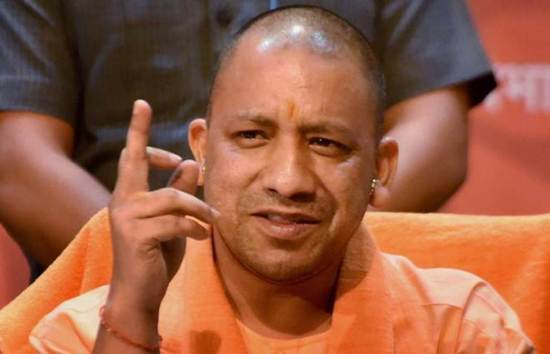Aastha Thakur
Published by: 25 August 2022 at 18:56 IST
The Supreme Court reserved its decision on a plea challenging the denial of permission to prosecute Uttar Pradesh Chief Minister Yogi Adityanath in an alleged hate speech case in 2007. The case was heard by a bench comprising Chief Justice of India N V Ramana, Justice Hima Kohli, and Justice CT Ravikumar.
The petitioner in its plea alleged that CM Yogi Adityanath made anti-Muslim hate remarks while addressing a public rally held in Gorakhpur in 2007. He challenged the decision taken by the UP government to refuse prosecution of the accused in the case and the closure report filed in the case. The petitioner had already approached the Allahabad High Court, which dismissed the application, following which he applied under Special Leave Petition before the Supreme Court.
The counsel appearing for the petitioner addressed the elephant in the room, which was –
“Whether the State can pass an order under Section 196 Cr.P.C. in respect of a proposed accused in a criminal case who, in the meantime, gets elected as the Chief Minister and is the Executive Head as per the scheme provided under Article 163 of the Constitution of India.”
He also highlighted the key issues that should be taken up by the apex court and stated that the first issue was that the investigation did not inspire confidence and, therefore, it needed to be transparent. The CJI enquired that, “Once a closure report is filed in the case, where is the question of sanction? It is an academic question… If there is no case, where will the question of sanction be?”
The petitioner on this argued that prima facie the case was made and sanction was sought on its basis, but it was declined between the Law department and the Home department.
The plea filed was opposed by the state counsel, Mukul Rohatgi, stating that nothing remained in the case as CSFL had stated that the CD in question, which had the alleged hate speech recording, was found to be tampered with and faked and the closure report submitted over it was accepted. The Law Department also opined that in viewing the closure report, the CD was tampered with and faked, which raises the question of the genuineness of evidence. As a result, no sanction case can be agreed upon.
Over the issues raised by the petitioner’s counsel, CJI Ramana orally remarked that the issue raised was an academic one. He stated that –
“The issue you are raising is academic issue…When the sanction will come? When there is a criminal proceeding going on. If there is no criminal proceeding, how will there be sanction?…On merits it has already been discussed that if there is a broken CD, it cannot be sent for forensic examination.”
Advocate Ayyubi further contended that the speech is in the public domain and CM Adityanath himself agreed to making such a speech in a TV interview, which amounts to an extra-judicial confession. Hence, it is immaterial if the CD was broken or tampered with.
The counter-argument counsel reiterated that, as per the rules, only in cases where there was a dispute between the Law Department and the Home Department, did a matter go to the final authority, that is, the Chief Minister. Since such a dispute did not exist in the present case, he stated that the matter wasn’t sent to the Chief Minister.
The state counsel put the petitioner on a pedestal, questioning his past criminal cases against him, including him being arrested once under the National Securities Act, 1980. He further stated that the court should impose costs on the petitioner–
“You cannot go on beating a dead horse after 15 years…just because the man happens to be CM today…If this is the state of the institution, does it inspire confidence?…If there is no material, there cannot be sanctions. I submit that your lordships should reject this with costs.”
In this context, Advocate Ayyubi cited the five-judge bench decision given in the case of Madhya Pradesh Special Police v. State of Madhya Pradesh & Ors (2004), which state
“Article 163 has been extracted above. Undoubtedly, in a matter of grant of sanction to prosecute the Governor is normally required to act on aid and advice of the Council of Ministers and not in his discretion. However, an exception may arise whilst considering grant of sanction to prosecute a Chief Minister or a Minister where as a matter of propriety the Governor may have to act in his own discretion. Similar would be the situation if the Council of Ministers disable itself or disentitles itself”. “
With the closing of the hearing, the Supreme Court reserved its judgement in the matter.

